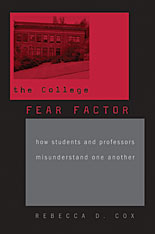
They’re not the students strolling across the bucolic liberal arts campuses where their grandfathers played football. They are first-generation college students—children of immigrants and blue-collar workers—who know that their hopes for success hinge on a degree.
But college is expensive, unfamiliar, and intimidating. Inexperienced students expect tough classes and demanding, remote faculty. They may not know what an assignment means, what a score indicates, or that a single grade is not a definitive measure of ability. And they certainly don’t feel entitled to be there. They do not presume success, and if they have a problem, they don’t expect to receive help or even a second chance.
Rebecca D. Cox draws on five years of interviews and observations at community colleges. She shows how students and their instructors misunderstand and ultimately fail one another, despite good intentions. Most memorably, she describes how easily students can feel defeated—by their real-world responsibilities and by the demands of college—and come to conclude that they just don’t belong there after all.
Eye-opening even for experienced faculty and administrators, The College Fear Factor reveals how the traditional college culture can actually pose obstacles to students’ success, and suggests strategies for effectively explaining academic expectations.
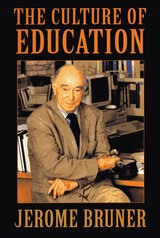
What we don't know about learning could fill a book--and it might be a schoolbook. In a masterly commentary on the possibilities of education, the eminent psychologist Jerome Bruner reveals how education can usher children into their culture, though it often fails to do so. Applying the newly emerging "cultural psychology" to education, Bruner proposes that the mind reaches its full potential only through participation in the culture--not just its more formal arts and sciences, but its ways of perceiving, thinking, feeling, and carrying out discourse. By examining both educational practice and educational theory, Bruner explores new and rich ways of approaching many of the classical problems that perplex educators.
Education, Bruner reminds us, cannot be reduced to mere information processing, sorting knowledge into categories. Its objective is to help learners construct meanings, not simply to manage information. Meaning making requires an understanding of the ways of one's culture--whether the subject in question is social studies, literature, or science. The Culture of Education makes a forceful case for the importance of narrative as an instrument of meaning making. An embodiment of culture, narrative permits us to understand the present, the past, and the humanly possible in a uniquely human way.
Going well beyond his earlier acclaimed books on education, Bruner looks past the issue of achieving individual competence to the question of how education equips individuals to participate in the culture on which life and livelihood depend. Educators, psychologists, and students of mind and culture will find in this volume an unsettling criticism that challenges our current conventional practices--as well as a wise vision that charts a direction for the future.
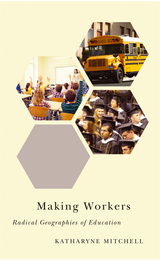
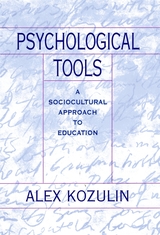
The concept of "psychological tools" is a cornerstone of L. S. Vygotsky's sociocultural theory of cognitive development. Psychological tools are the symbolic cultural artifacts--signs, symbols, texts, formulae, and most fundamentally, language--that enable us to master psychological functions like memory, perception, and attention in ways appropriate to our cultures. In this lucid book, Alex Kozulin argues that the concept offers a useful way to analyze cross-cultural differences in thought and to develop practical strategies for educating immigrant children from widely different cultures.
Kozulin begins by offering an overview of Vygotsky's theory, which argues that consciousness arises from communication as civilization transforms "natural" psychological functions into "cultural" ones. He also compares sociocultural theory to other innovative approaches to learning, cognitive education in particular. And in a vivid case study, the author describes his work with recent Ethiopian immigrants to Israel, whose traditional modes of learning were oral and imitative, and who consequently proved to be quick at learning conversational Hebrew, but who struggled with the reading, writing, and formal problem solving required by a Western classroom. Last, Kozulin develops Vygotsky's concept of psychological tools to promote literature as a useful tool in cognitive development.
With its explication of Vygotsky's theory, its case study of sociocultural pedagogy, and its suggested use of literary text for cognitive development, Psychological Tools will be of considerable interest to research psychologists and educators alike.

Despite the modesty of its title, the publication of this book in 1899 was a significant event. It marked the first application of the relatively new discipline of psychology, and specifically of James's theses in The Principles of Psychology, to educational theory and classroom practice. The book went through twelve printings in as many years and has never been out of print. Among its innovative features were James's maxims "No reception without reaction" and "No impression without expression"; a new emphasis on the biology of behavior and on the role of instincts; and discussions of the relevance to elementary school education of what is known about will, attention, memory, apperception, and the association of ideas.
Appended to the fifteen talks to schoolteachers were three talks to college students, as pertinent today as when they were written: "The Gospel of Relaxation," "On a Certain Blindness in Human Beings," and "What Makes a Life Significant?"
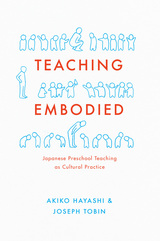
Akiko Hayashi and Joseph Tobin embed themselves in the classrooms of three different teachers at three different schools to examine how teachers act, think, and talk. Drawing on extended interviews, their own real-time observations, and hours of video footage, they focus on how teachers embody their lessons: how they use their hands to gesture, comfort, or discipline; how they direct their posture, gaze, or physical location to indicate degrees of attention; and how they use the tone of their voice to communicate empathy, frustration, disapproval, or enthusiasm. Comparing teachers across schools and over time, they offer an illuminating analysis of the gestures that comprise a total body language, something that, while hardly ever explicitly discussed, the teachers all share to a remarkable degree. Showcasing the tremendous importance of—and dearth of attention to—this body language, they offer a powerful new inroad into educational study and practice, a deeper understanding of how teaching actually works, no matter what culture or country it is being practiced in.
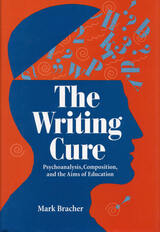
Psychoanalysis and writing instruction have much to offer each other, asserts Mark Bracher. In this book, Bracher examines the intersection between these two fields and proposes pedagogical uses of psychoanalytic technique for writing instruction.
Psychoanalysis reveals that the writing process is profoundly affected by factors that current theories have largely neglected—forces such as enjoyment, desire, fantasy, and anxiety, which, moreover, are often unconscious. Articulating an approach based on the work of Jacques Lacan, Bracher shows how a psychoanalytic perspective can offer useful insights into the nature of the writing process, the sources of writing problems, and the dynamics of writing instruction. He further demonstrates that writing instruction constitutes the most favorable venue outside of individual psychoanalytic treatment for pursuing psychoanalytic research and practice. Like psychoanalytic treatment proper, writing instruction can function as a way of reducing psychological conflict and as a means of pursuing psychoanalytic research into the workings of the mind. Empirical studies and personal testimonies have demonstrated the psychological (and even the physical) benefits of writing about personal conflict in an academic setting; such benefits promise to be enhanced and consolidated through the application of psychoanalytic principles to the teaching of writing.
READERS
Browse our collection.
PUBLISHERS
See BiblioVault's publisher services.
STUDENT SERVICES
Files for college accessibility offices.
UChicago Accessibility Resources
home | accessibility | search | about | contact us
BiblioVault ® 2001 - 2024
The University of Chicago Press









